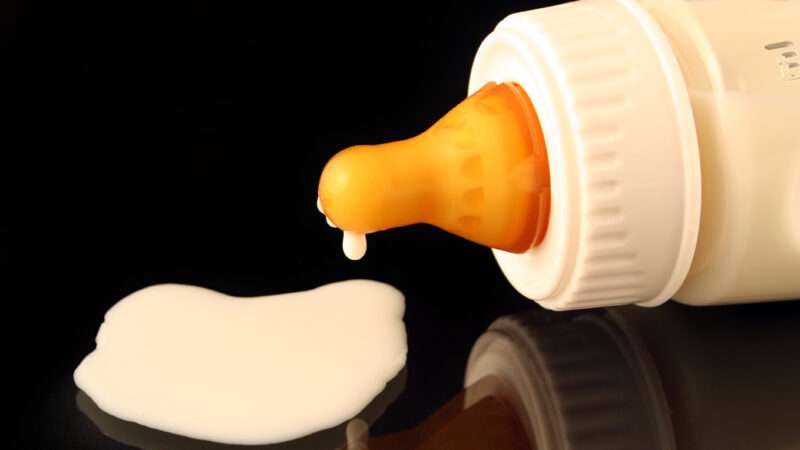
My son was born with severe heartburn and cried constantly—and the baby formula on the shelves only caused him more pain. At the suggestion of our pediatrician, we turned to a European goat milk formula that we hoped could soothe my son's stomach until he grew out of his condition. But recently our orders were canceled, thanks to the Food and Drug Administration (FDA).
America's baby formulas are incredibly standardized. The FDA claims that that's safer, but those regulations mean that most formulas have multiple ingredients that could be allergens or irritants. Milk-based formulas in the U.S. also have soy ingredients like soy oil, as well as palm oil. And most American formulas have higher than average levels of iron, which can cause constipation. While many European brands are similar to American ones, you can find brands there that don't contain so many possible irritants to a child's sensitive stomach. We used Nannycare, and my son found it much more tolerable than its stateside competitors.
It's impossible to say for sure why my English supplier suddenly decided not to sell formulas to a buyer in the U.S. But the timing of the cancellation provides a clue: It happened shortly after the FDA blocked a large amount of European formula from being sold, declaring that they did not meet the agency's standards.
We are far from the only family that relies on European baby formula. Yet the free flow of perfectly safe goods into the United States is still extremely restricted. The agency's strict rules about how formulas can be made limit options for children with medical issues and leaves parents with products that can cause their little ones pain.
Worse yet, these regulations are more driven by bureaucratic and political interests than by science. These products, after all, have not caused a wave of problems for European babies.
Luckily, by the time our shipments were cut off my son had nearly outgrown his problem. So we transitioned him to an American formula.
The compulsory standardization of the American formula market also makes it difficult for pediatricians to determine whether a child is allergic to a formula component or has a more serious digestive issue. If parents had more choice over the formula their children consumed, a physician could recommend different products for a child they believe is suffering from an allergic reaction or a more serious issue. But the market is so uniform that it's nearly impossible to determine what component could be bothering the infant. Often, infants don't get treated until much later, because it's too difficult for doctors to determine what's causing the discomfort.
It would have been nice to start my son's acid-reducing medications sooner. Instead, I got two months of an incredibly uncomfortable and cranky newborn.
The post My Baby Needed Special Formula From Europe. U.S. Trade Policy Made It Almost Unobtainable. appeared first on Reason.com.







